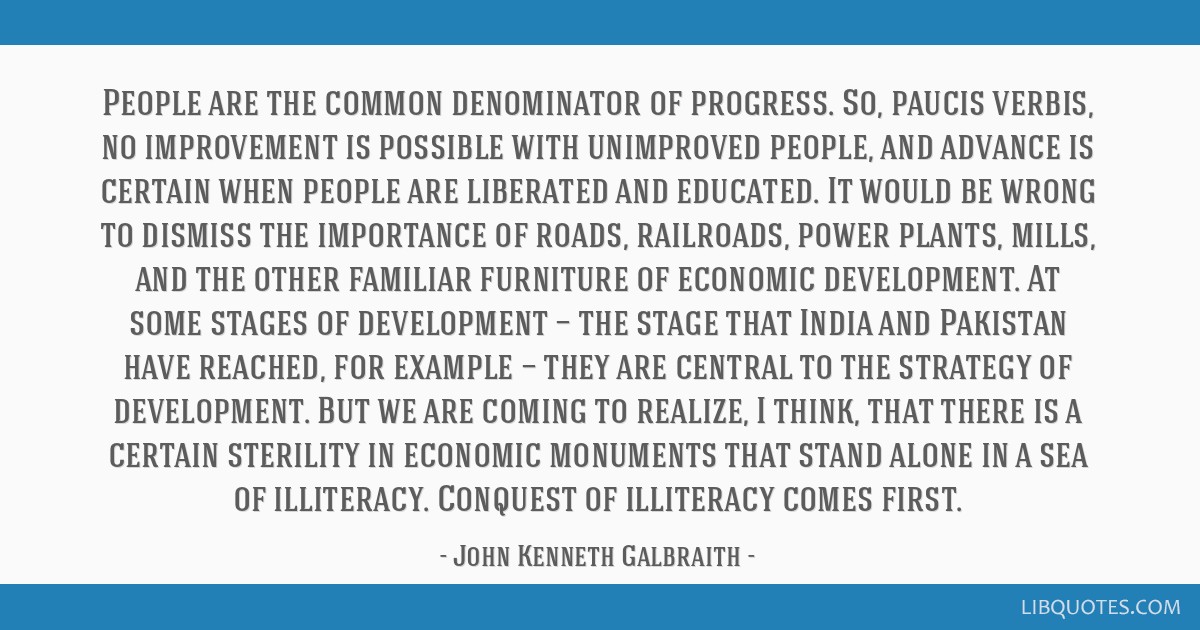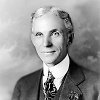People are the common denominator of progress. So, paucis verbis, no improvement is possible with unimproved people, and advance is certain when people are liberated and educated. It would be wrong to dismiss the importance of roads, railroads, power plants, mills, and the other familiar furniture of economic development. At some stages of development — the stage that India and Pakistan have reached, for example — they are central to the strategy of development. But we are coming to realize, I think, that there is a certain sterility in economic monuments that stand alone in a sea of illiteracy. Conquest of illiteracy comes first.
Economic Development (1964), ch. 2























